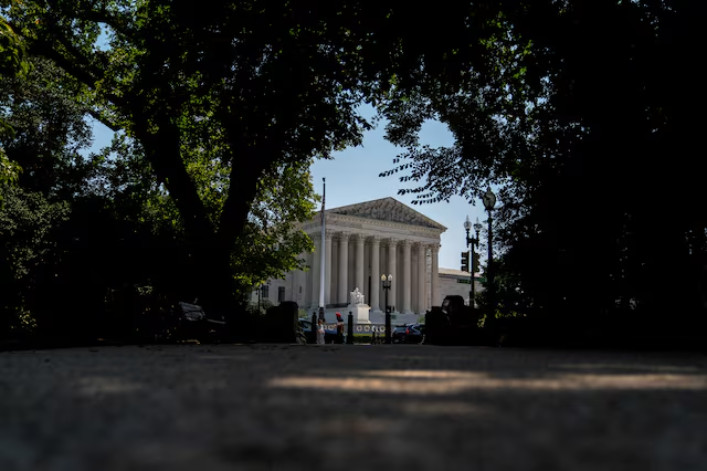A new federal rule protecting LGBT students from discrimination based on gender identity remains blocked in 26 states despite taking effect on Thursday. The U.S. Supreme Court has yet to act on requests from President Joe Biden’s administration to widen enforcement of the rule. The rule, announced in April, expands protections under Title IX of the Education Amendments of 1972, a federal law that prohibits sex discrimination in federally funded education programs.
The U.S. Education Department can enforce the rule in 24 of the 50 states, while litigation continues in the remaining states. The department stands by the final Title IX regulations released in April 2024 and vows to fight for every student.
The Biden administration had asked the Supreme Court to intervene in lawsuits filed by several states and school boards, seeking to restore a provision stating that discrimination “on the basis of sex” includes sexual orientation and gender identity. The rule has faced opposition from plaintiffs who argue that it forces schools to allow transgender students to use certain facilities and mandates the use of preferred pronouns for transgender students. Critics claim that the administration has rewritten an existing law to push a political agenda and have expressed concerns about safety and the protection of women’s rights.
While the administration achieved a victory when a federal judge refused to block the rule in Alabama, Florida, South Carolina, and Georgia, the 11th U.S. Circuit Court of Appeals temporarily halted the rule in these states pending further review. Overall, the rule makes significant changes to regulations combating sex discrimination under Title IX, including coverage for LGBT individuals and increased protections for pregnant students, parents, and guardians.
The administration argues that protecting LGBT students under Title IX aligns with the Supreme Court’s 2020 ruling that Title VII, a law prohibiting workplace discrimination, also protects gay and transgender employees. However, U.S. District Judges in Louisiana and Kentucky concluded that Title IX’s reference to sex only applies to “biological” males and females, and that the 2020 Supreme Court ruling does not extend to this context.
In June, the Supreme Court agreed to hear a case involving a Republican-backed ban on gender-affirming medical care for transgender minors in Tennessee. The court will review the case in its next term starting in October.

